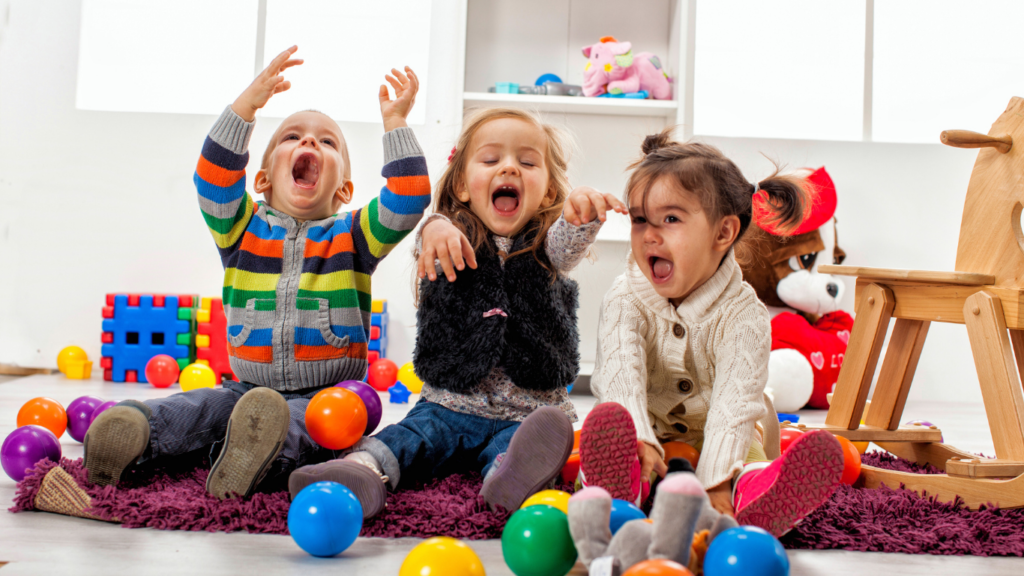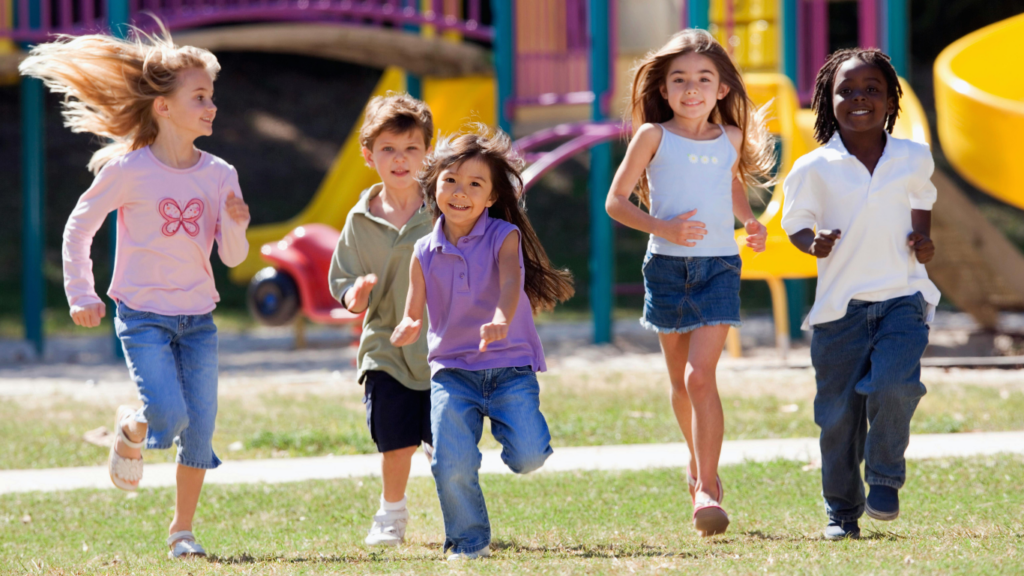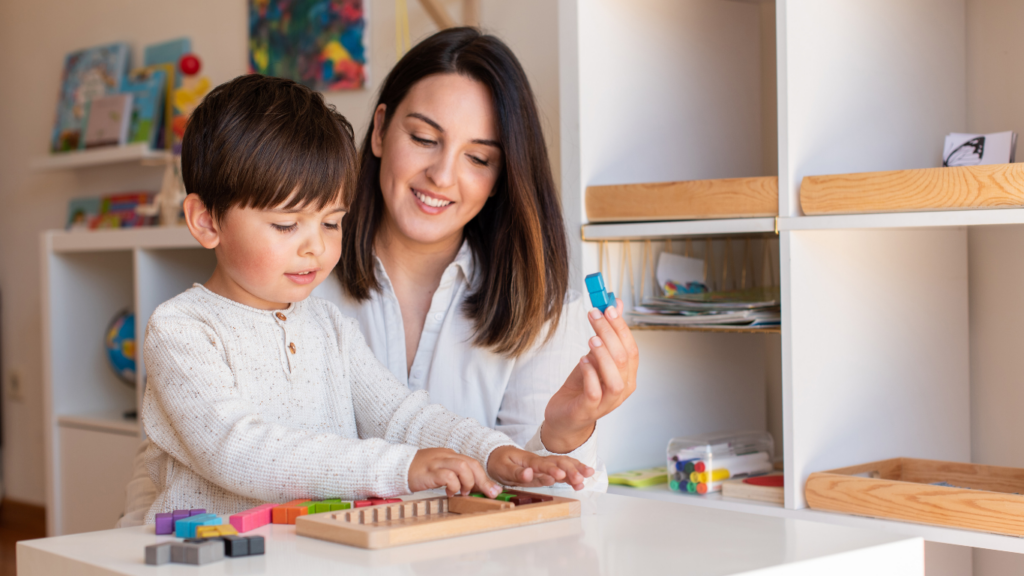Watching young kids grow and interact with the world around them is nothing short of fascinating. Social development plays a crucial role during these early years, shaping how they connect with others, express emotions, and build relationships. It’s not just about making friends—it’s about learning the skills that form the foundation for communication, empathy, and collaboration.
What Is Social Development In Young Kids?
Social development in young kids refers to their ability to interact with others, build relationships, and understand social norms. It encompasses learning to share, take turns, and communicate needs effectively. These skills enable children to navigate social settings and form meaningful connections.
Key aspects of social development include:
- empathy
- cooperation
- conflict resolution
Young children gradually recognize emotions in others (e.g., sadness, happiness) and respond appropriately to them. This growth aids in fostering positive interactions and building trust in relationships.
Social milestones in early childhood often revolve around play and group activities. For instance, toddlers may engage in parallel play, where they play near others without direct interaction. As they grow, they transition to cooperative play, collaborating with peers on shared goals. These stages highlight their evolving social abilities.
Key Milestones In Social Development

Social development progresses through distinct stages in young kids, shaped by their growing understanding of themselves and others. Each phase introduces new milestones that build on earlier skills.
Birth To Two Years
During this stage, infants start forming social connections, primarily through caregivers. By 6 months, they develop social smiles, responding to familiar faces and voices. At around 9-12 months, behaviors like stranger anxiety appear, showing increased awareness of social presence. By 18 months, toddlers may engage in simple imitation, a precursor to learning social behaviors. Expressing basic emotions, like joy and distress, also emerges as they adapt to their surroundings.
Two To Five Years
Preschool years bring rapid advancements in social skills. At two, children often engage in parallel play, enjoying the company of others without direct interaction. By three, they start interacting through associative play, sharing toys casually. Cooperation improves around age four, leading to organized group activities, such as pretend play with set roles. Empathy begins to strengthen as children understand emotions in others, supporting early conflict resolution and negotiation during play.
Five To Eight Years
By school age, kids refine their social abilities through structured peer interactions. They form close friendships based on trust and shared interests. Around age six, they better navigate group dynamics, learning compromise and teamwork. By seven to eight, understanding social norms deepens, enabling children to adjust behavior to fit different settings. This stage fosters independence in problem-solving while building enduring, sincere connections.
Factors Influencing Social Development
Various factors shape how young kids develop socially. Parenting, peer interactions, and environmental conditions play pivotal roles in guiding children’s social growth and behavior.
Parenting Styles
- Parenting approaches significantly impact social development.
- Authoritative parenting, blending warmth with clear boundaries, often fosters empathy, cooperation, and confidence in children.
- Permissive parenting may limit a child’s ability to understand rules, leading to difficulty in group settings.
- In contrast, authoritarian approaches might hinder emotional expression, affecting peer relationships negatively.
- Consistent and nurturing parenting cultivates trust and emotional security, creating a robust foundation for social learning.
Peer Interactions
Peer relationships teach critical social skills. Regular interaction with peers helps children learn cooperation, turn-taking, and conflict resolution. For instance, toddlers engaging in parallel play eventually transition to cooperative play, practicing teamwork and empathy. Positive peer experiences also enhance communication and problem-solving abilities. However, limited or negative peer interactions can delay social skill development, affecting self-esteem and relational success.
Environmental Influences
A child’s surroundings shape their social behavior. Living in diverse or socially engaging environments exposes them to various perspectives, encouraging adaptability and open-mindedness. Access to supportive educational settings further enhances collaboration and peer engagement. Conversely, chaotic or neglectful environments may impede social learning due to stress or limited exposure to constructive interactions. Proactive involvement in activities like group play fosters essential social skills in young kids.
How To Support Healthy Social Development
Supporting healthy social development helps young kids build essential skills for interactions, relationships, and emotional well-being. It involves creating opportunities for growth in everyday routines.
Encouraging Play and Interaction
I encourage various forms of play to help kids engage with peers and learn cooperation. Structured activities like group games teach teamwork and turn-taking, while unstructured free play helps kids develop creativity and problem-solving. Playdates with age-appropriate peers provide valuable opportunities for building friendships. I also introduce activities like board games or collaborative tasks, which promote communication and shared goals.
Teaching Emotional Skills
I teach kids to recognize and express emotions through simple techniques like naming feelings during daily situations. For example, I might say, “You look upset; let’s talk about it.” Role-playing scenarios, such as resolving a conflict or asking for help, helps kids practice these skills. I model empathy by acknowledging others’ emotions and explaining how to respond supportively. Picture books or stories about emotions offer another great way to teach emotional literacy.
Building A Positive Environment
I create a supportive and consistent environment by setting clear expectations and celebrating social successes. For instance, I praise behaviors like sharing or including others in play. A calm, organized home reduces stress and allows kids to thrive socially. I also expose them to diverse experiences, such as community activities or cultural events, to build adaptability and understanding of different perspectives. Limiting exposure to negative behaviors, like shouting or criticism, reinforces kindness and respect.



 Founder & Editorial Director
Founder & Editorial Director
